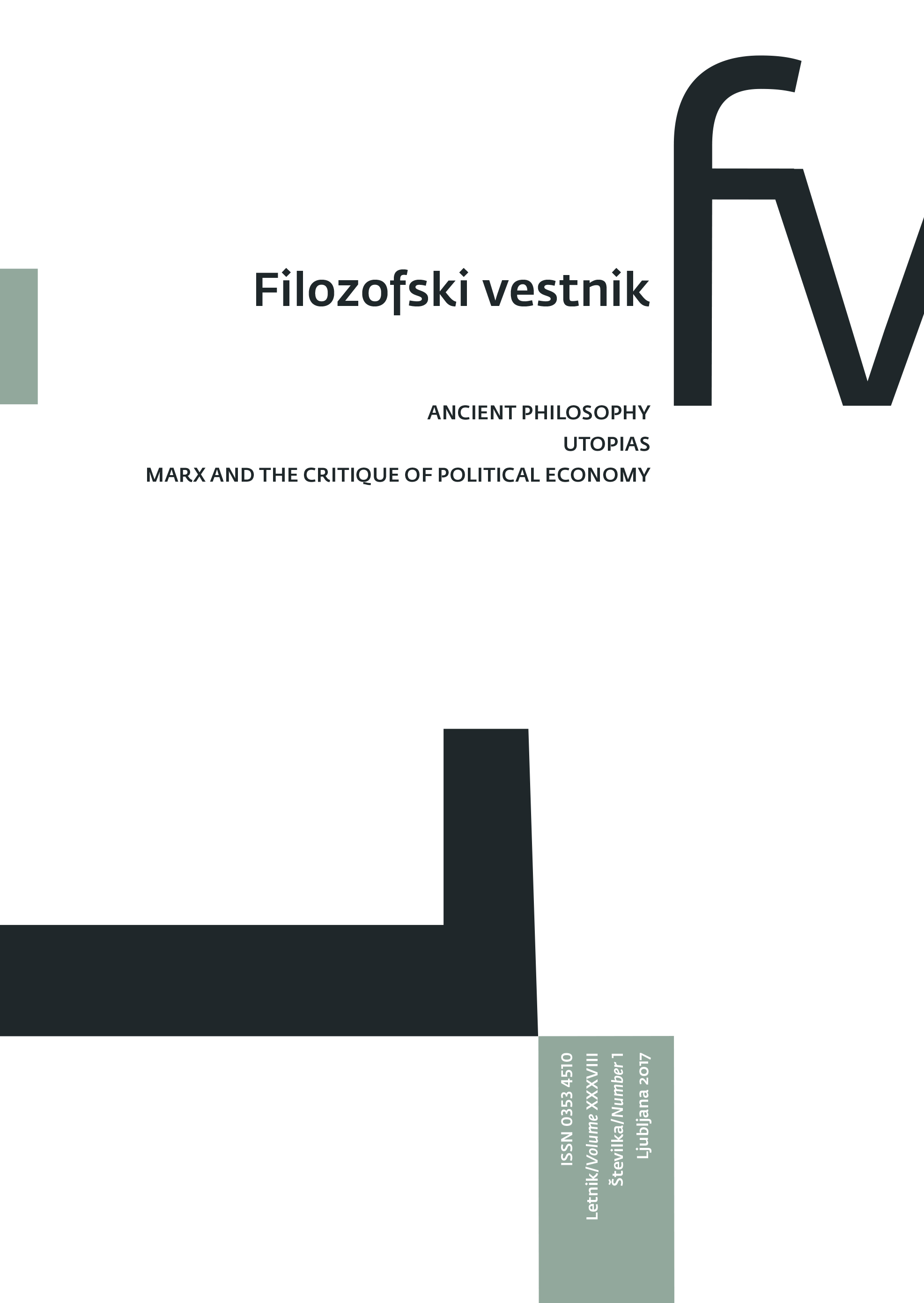Meno’s “Paradox”: An Analysis of the Eristic Argument
Keywords:
Platon, Menon, paradoks, eristični argument, vrste vednostiAbstract
The vast amount of contemporary work on the dialogue entitled Meno by Plato aims to shed light on the construction of virtue by attempting to figure out how it can be obtained considering the three moments suggested at the beginning of the dialogue, namely διδακτόν, ᾰσκητόν, and ϕύσει. This article aims to target the eristic argument in 80e famously known as “Meno’s Paradox”, dissecting it to its elements, and attempts to unveil the deliberately hidden meanings in each part of the argument using different Greek terms that signify knowing in a different sense. This philo-logical/philosophical analysis of the eristic argument helps crack the sophistical/eristic façade which has led many philosophers into thinking that it is not possible to start or proceed with a philosophical inquiry, and is also intended to accentuate the difference between sophistical refutations and genuine philosophising, as the latter is a feature to be found in Platonic and Aristotelian texts.
Downloads
Downloads
Published
How to Cite
Issue
Section
License
Authors guarantee that the work is their own original creation and does not infringe any statutory or common-law copyright or any proprietary right of any third party. In case of claims by third parties, authors commit their self to defend the interests of the publisher, and shall cover any potential costs.
More in: Submission chapter





